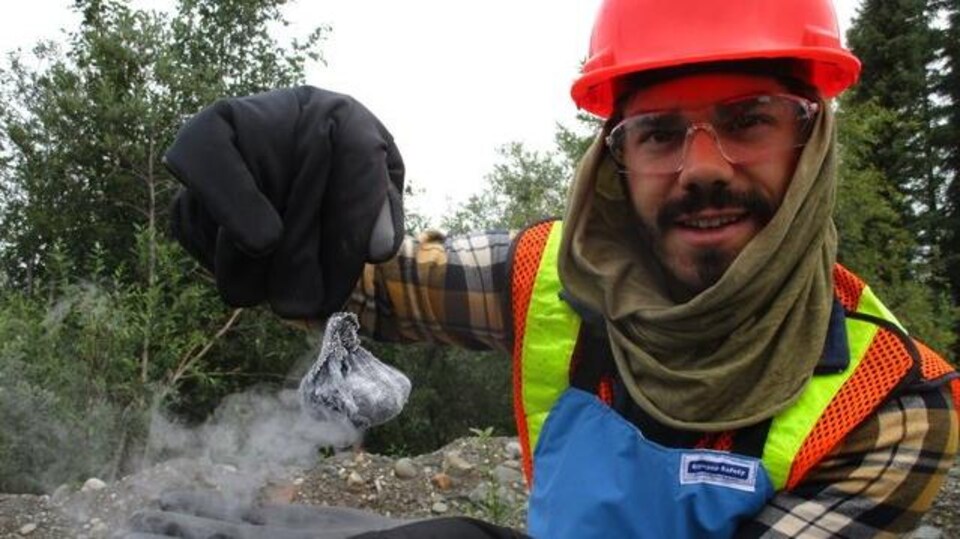
Passive treatment systems have been considered a promising alternative to replace active treatment systems that require chemicals and labor for treating mine impacted water for many years. The objective of this project was to test Sulfate Reducing Bioreactors on mine impacted water from the Keno Hill mine site.The bioreactors rely on sulfate-reducing bacteria (SRB) which needs the right environment to thrive within mine workings and wastes. The cold climate of the Yukon Territory affects bacterial growth and effectiveness. Which is why a method was needed to determine if SRB can be used to treat mine impacted water in the Yukon, especially when trying to decide what types of nutrients to add and at what dosage.
An effective passive method for securing metals at the mine site is to use microbial mediated mineralization. Sulfate-reducing bacteria are one of the most well-known microbial groups for metal immobilization. To stimulate in situ bioremediation in this project, different nutrients were tested to support SRB’s growth and efficiency for metal sequestration.
The success of Passive Sulfate-Reducing Bioreactors depends on the understanding of the microorganisms involved. The operating method and effectiveness of passive sulfate-reducing bioreactors are highly influenced by microbial activity. The role of the microbial community must be well understood to optimize the design and performance in these passive systems. By interpreting the data from the bioreactors, we can gain insights into what metal removal from mine water is possible in cold climates.